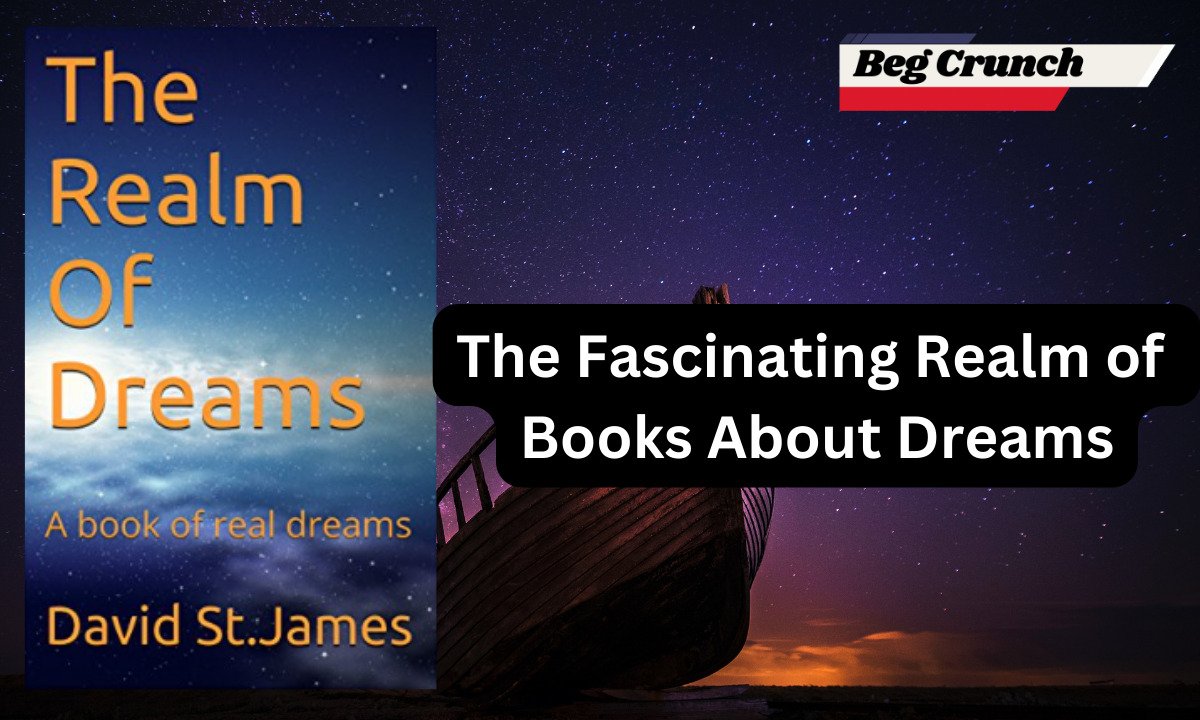The Fascinating Realm of Books About Dreams
Dreams have long retained a strange and alluring attraction in the world of literature. The exploration of dreams in books offers a unique opportunity to delve into the subconscious, unlock hidden desires, and unravel the enigma of the human mind. If you’re eager to embark on a literary journey that delves into the world of dreams, look no further. This curated collection of books about dreams will take you on a thought-provoking adventure through the landscapes of imagination and psyche.
Introduction: Dreams in Literature
Dreams, those elusive fragments of imagination that visit us during slumber, have long captured the attention of writers. These ephemeral experiences, often filled with symbolism and emotion, serve as a wellspring of inspiration. Throughout history, authors have used dreams to explore themes of identity, desires, and the blurred lines between reality and the subconscious.
- Exploring the Top Books About Dreams
“The Interpretation of Dreams” by Sigmund Freud
Sigmund Freud’s seminal work, The Interpretation of Dreams, revolutionized the way we understand dreams. Freud delves into the intricate layers of dreams, dissecting their symbolism and hidden meanings. This psychological masterpiece not only shaped the field of dream analysis but also left an indelible mark on literature by inspiring writers to explore the depths of the human psyche.
“Murakami’s Sleep” by Satoshi Kon
“Murakami’s Sleep” is an exquisite blend of literature and art, crafted by the renowned filmmaker Satoshi Kon. This captivating book explores the ethereal world of dreams through Kon’s mesmerizing artwork and contemplative prose. The pages come alive with dreamlike imagery, blurring the boundaries between wakefulness and slumber.
“Paprika” by Yasutaka Tsutsui
In “Paprika”, Yasutaka Tsutsui crafts a hypnotic narrative that delves into the realm of dreams and technology. As dreams and reality intertwine, a device called the DC Mini allows therapists to enter their patients’ dreams. Tsutsui’s exploration of dreams as both a source of insight and chaos invites readers to question the nature of their own dreams.
- Dream Analysis and Its Literary Significance
Dream analysis, a cornerstone of psychology, has profound literary significance. It allows authors to delve into characters’ subconscious minds, unraveling their fears, desires, and unresolved conflicts. By employing dream symbolism, authors can create multi-layered narratives that resonate on both conscious and unconscious levels, immersing readers in a world where reality and dreams interweave.
- Unveiling the Mystery of Lucid Dreaming
Stephen LaBerge’s “Exploring the World of Lucid Dreaming”
Lucid dreaming, a state in which dreamers are aware they’re dreaming and can influence the dream’s course, has intrigued minds for centuries. In “Exploring the World of Lucid Dreaming”, Stephen LaBerge provides a comprehensive guide to lucid dreaming techniques. This book not only offers readers the tools to experience this phenomenon but also inspires writers to craft narratives that bridge the gap between dream and reality.
The book “Lucid Dreaming: A Beginner’s Guide” through Charlie Morley
For those new to lucid dreaming, “Lucid Dreaming: A Beginner’s Guide” by Charlie Morley serves as an accessible entry point. Morley introduces readers to the concept of lucid dreaming and provides practical exercises to induce and navigate lucid dreams. This intriguing practice can serve as fertile ground for authors to explore the boundaries of perception and consciousness.
FAQs
Why are dreams a popular theme in literature?
Dreams evoke a sense of mystery and wonder, making them a rich source of inspiration for writers. They provide a canvas for exploring the human psyche, delving into characters’ fears, hopes, and insecurities. Dreams also challenge the notion of reality, allowing authors to create narratives that blur the line between the conscious and subconscious realms.
Can dreams be effectively translated into written words?
Translating the ephemeral and often abstract nature of dreams into written language is a complex endeavor. Writers use vivid descriptions, symbolism, and sensory details to convey the essence of dreams. Through careful word choice and imaginative prose, authors strive to capture the emotional and sensory experiences that dreams evoke.
Do cultural differences influence the portrayal of dreams in literature?
Absolutely. Cultural beliefs, traditions, and mythologies shape the way dreams are perceived and interpreted. Dreams can hold different cultural significance, and authors from various backgrounds infuse their works with these cultural nuances. This diversity adds depth to the portrayal of dreams in literature, showcasing the varied ways in which dreams are woven into the fabric of human experience.
- The Enduring Allure of Dreams in Writing
The enduring allure of dreams in writing lies in their ability to transcend the boundaries of reality. Dreams invite readers to suspend disbelief, encouraging them to explore the depths of imagination. As literary devices, dreams infuse narratives with layers of symbolism, foreshadowing, and emotional resonance, creating an immersive reading experience that lingers long after the last page is turned.
- Beyond Fiction: Dreams as a Path to Self-Discovery
Beyond the realm of fiction, dreams hold profound significance for individuals seeking self-discovery and introspection. Many turn to dream journals to decode the cryptic messages their subconscious minds deliver during sleep. Just as authors use dreams to enrich their narratives, individuals can use dream analysis to better understand their own desires, fears, and aspirations.
- Embarking on a Dream-Driven Reading Odyssey
As you embark on your journey through books about dreams, prepare to unlock the doors to your own subconscious. The pages will transport you to worlds where the ordinary becomes extraordinary and the boundaries of reality blur. From Freud’s groundbreaking theories to the captivating narratives inspired by dreams, each book on this voyage promises a glimpse into the profound mysteries that lie within the human mind.
Conclusion
the intersection of dreams and literature is a tapestry woven with symbolism, mystery, and boundless imagination. Whether you’re captivated by the exploration of dream symbolism or intrigued by the potential of lucid dreaming, the books about dreams in this collection offer an invitation too!







